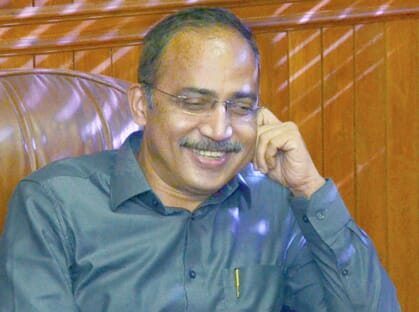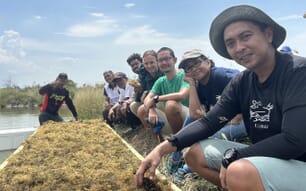
At a time when climate change is increasingly posing a major threat to human life across the globe, cultivating seaweed, will help to boost the economy and reduce the impact of climate crisis as well, he said.
He was speaking at an interactive meeting with scientists from the Central Marine Fisheries Research Institute (CMFRI), held at its headquarters in Kochi.
“An additional livelihood option, seaweed farming will play a major role in the socio-economic upliftment of traditional fishermen during this difficult time,” the secretary said.
Seaweed seedbank
He asked the CMFRI to set up a seedbank of seaweeds.
“Marine scientists should come up with ways for capacity development to enhance seaweed cultivation on large-scale,” Swain said, adding that the Pradhan Mantri Matsya Sampada Yojana (PMMSY) has a special thrust for the promotion of seaweed farming. He was on a visit to Kerala to understand the issues and challenges being faced by the sector after taking over the portfolio four months ago. Apart from those in the Kochi headquarters, CMFRI scientists from various regional research stations across the country also attended the meeting.
Elaborating on the country’s ambitious plan in the marine fisheries sector, the Fisheries secretary said that India aims to double its seafood exports in the next five years.
“We are hopeful of achieving this target by exploring innovative ways to increase the production that will certainly upscale the country’s per capita income,” he said. Technological development is crucial in this regard especially for areas such as seed production and other hatchery infrastructure for diversified mariculture activities, he said.
Emphasising the need to promote better livelihood options to support traditional fishermen, he said that strengthening of aquaculture and marine fisheries by utilising the technological advancements would help them fetch good income and improve their living standard.
“The government is in supportive of promoting the cage fish farming, which is also an alternative source of income, in a big way that would help the traditional fishermen to double their income”, Mr Swain said and lauded the efforts of CMFRI to give a major boost to this practice across the coastal states.
Shrimp ranching
He added that stocking green tiger shrimp post-larvae into parts of the sea also has great potential, following CMFRI’s successful adoption on the project in Palk Bay.
Flagging his concern on resource depletion and ecosystem degradation, he urged scientists to focus on ways to promote responsible fishing and to adopt appropriate mechanisms to improve sustainable fishing.




